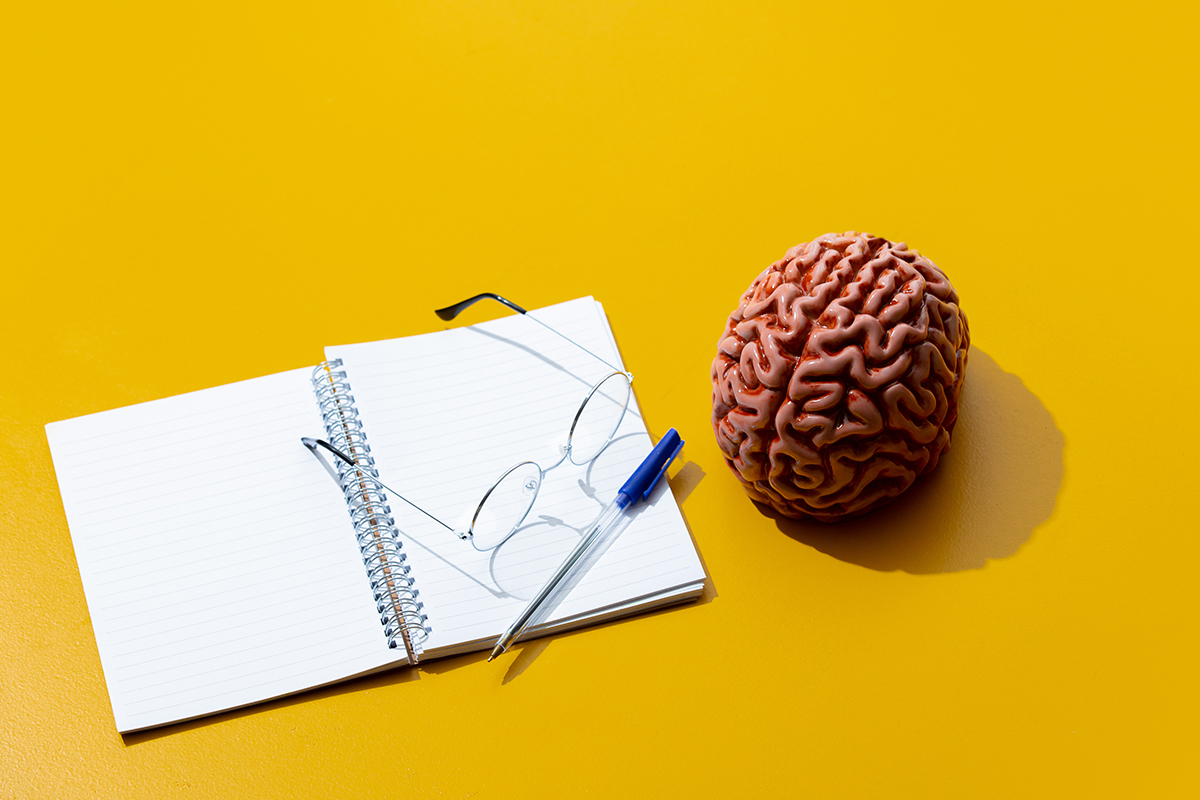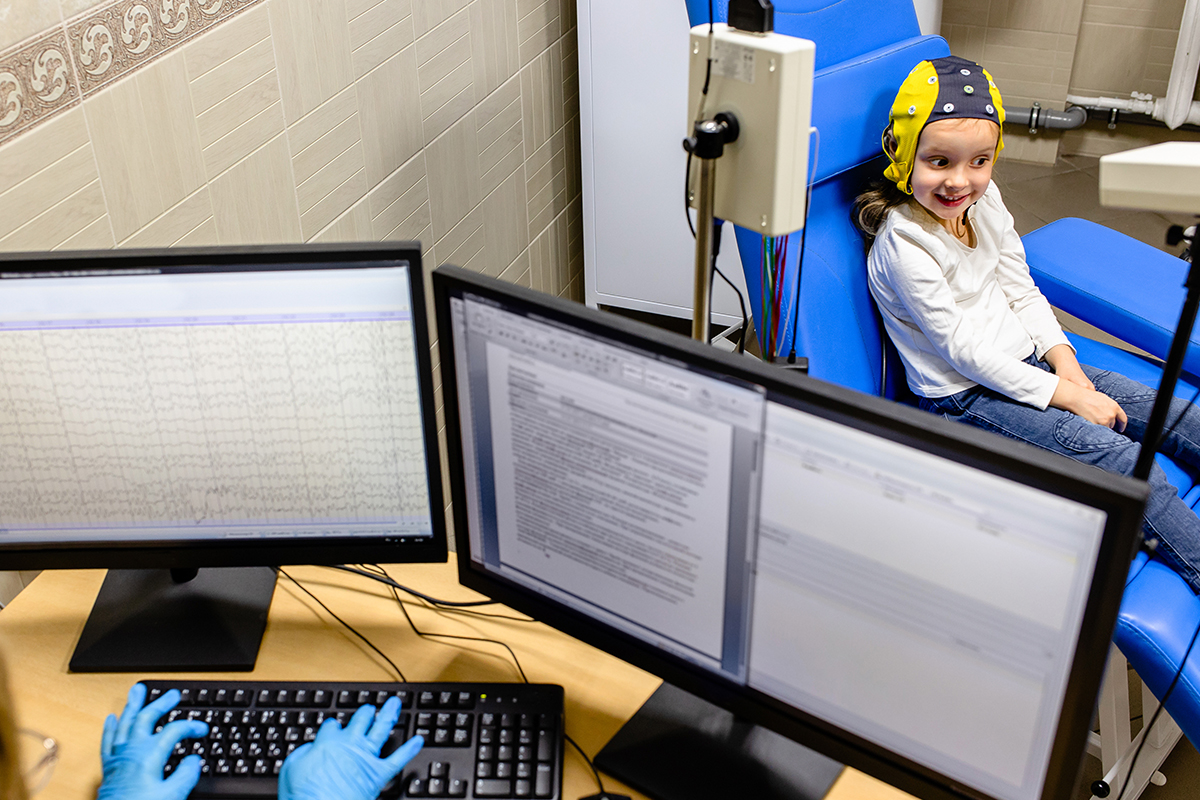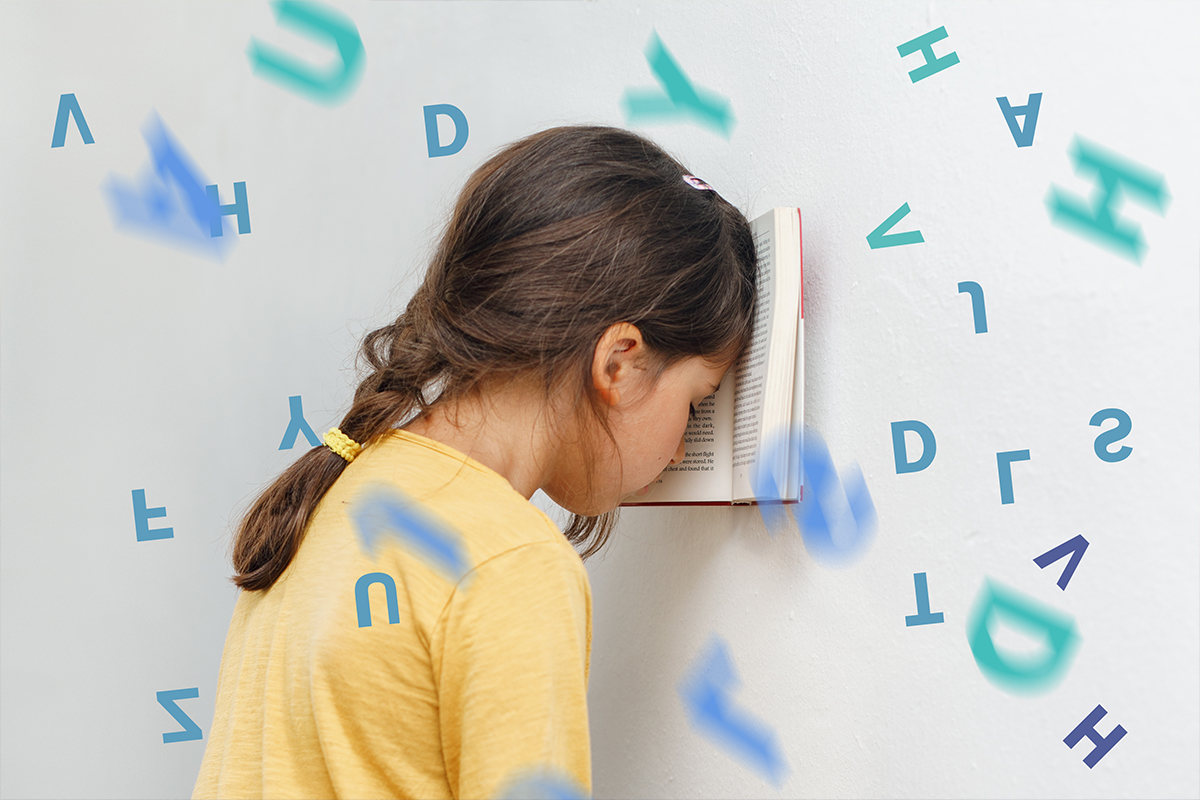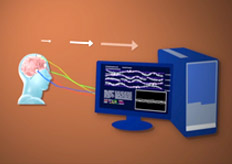
The History of Neurofeedback: Part I
How does Neurofeedback work? Why is it so effective in treating brain conditions as varied as ADHD, traumatic brain injury, seizures and learning disabilities? And so on. In the interest of answering these and other questions, we thought we’d start with the history of this remarkable, non-medicinal treatment for the brain known as Neurotherapy now available in Chicago.
Learn More
Summer Classes Forming Now
Cognitive Solutions offers one on one and group programs in the summer aimed at developing students’ processing abilities, executive functions, and academic weaknesses. Our programs are highly individualized, and designed to help our students reach their full potential. Our programming is designed for students diagnosed with Attention Deficit Disorder (ADD or ADHD), learning disabilities (dyslexia, dysgraphia, dyscalculia), or executive functioning difficulties in Chicago, Illinois. Contact us at 773-755-1775 or info@helpforld.com for more information on our summer remediation programs.
Learn More
What Exactly Is A Learning Specialist?
Learning Specialist – Isn’t that just a tutor?
By Ari Goldstein, Ph.D.
Tutors have existed for as long as man. Elders helping the younger generation learn the skill sets necessary to survive in their environment. Of course, early tutoring focused more on gathering food and creating shelter than on memorizing math tables. Fast forward to our test driven and memorization based school curriculum. Students have to absorb and repeat mountains of information on a regular basis. They have to work quickly, efficiently, and a strong competitive sense emergences in most classrooms from an early age. Most parents feel their children need to keep up, and some are concerned with even “Average” performance. As a result, Americans spend billions of dollars each year for tutoring support for their children.
A tutor is a very useful tool for many students. Tutors help their pupils learn facts, study for tests, and become more fluent and efficient with a range of academic tasks. But what happens when those academic deficiencies are driven by difficulties processing information? Does the tutoring work? My clinical experience would indicate that often it does not. When students come to Cognitive Solutions Learning Center in Chicago, many are initially assessed to better understand their processing and functioning through a comprehensive evaluation. Having information about how the brain processes information is highly useful when planning how to best help a student remediate areas of processing difficulty. Specialized interventions can be designed which are aimed at developing a student’s underlying cognitive and processing deficiencies. This makes the process of tutoring much more targeted and effective.
Tutors come in all shapes and sizes, with a wide variance in education, background, and experience. They range from high-school and college students looking to make some extra money to retired teachers who love helping children, and everywhere in between. How well a tutor can help a student often depends on their experience and their ability to develop a strong rapport. But what they can do is often limited. Without understanding of and intervention with underlying processing deficiencies, many students will not make the expected levels of progress they are working so hard to gain. This frequently leads to frustration on the part of the student, the tutor, and the teachers and parents.
A learning specialist is someone who typically possesses a minimum of a Master’s Degree in a special education related field. The have extensive experience reading and interpreting psychoeducational and neuropsychological evaluations, and are able to use these documents to create intensive and effective remediation programs. Many work as special education teachers in the school system, and develop private interventions for students in after-school hours. Learning specialists work to strengthen underlying brain processing, at the same time helping the student develop a strong academic skill base.
A student who has difficulty reading will often begin work with a tutor. They will typically work to develop stronger fluency, decoding, and compression skills. But what if the student isn’t making progress in this work? What if all the repetition and multi-sensory teaching are not working? That is where an understanding of processing can better assists a learning specialist in their work. Many students who struggle to read have some form difficulty with their their auditory, visual, or executive processing systems. A learning specialist will work to develop reading skills in a manner similar to a tutor, however they will also design and implement a targeted intervention to address any underlying processing deficiencies. This might include auditory processing work, expressive or receptive language development, visual tracking and visual motor work, or executive skills development. Strengthening how the brain processes information while at the same time developing academic skills makes for a powerful and effective remediation program. The same processing difficulties can be true for students with a range of learning disabilities, including dyslexia, dysgraphia, and dyscalculia. Often times, difficulties processing information through one of the systems mentioned is a strong underlying factor in their struggles to learn. Students diagnosed with Attention Deficit Hyperactivity Disorder (ADD/ADHD) often have executive deficiencies that can be strengthened through targeted work with a learning specialist.
While tutoring is beneficial for many students who simply require some extra practice or “brush up” on skills, it is often ineffective for students who struggle to develop learning skills. These students frequently see far better outcomes when their academic interventions are designed more broadly to target and strengthen areas of their brain that aren’t properly processing the world around them.
At Cognitive Solutions, many students come to us after multiple unsuccessful attempts at tutoring. Our learning specialists create highly individualized remediation plans, and work with students to strengthen academic functioning, processing capacities, and self-esteem. For more information on Cognitive Solutions Learning Center in Chicago, please feel free to visit us online at www.helpforld.com.
Learn More
Neurofeedback: Science or Shamanistic Ritual?
Neurofeedback: Science or Shamanistic Ritual?
By Ari Goldstein, Ph.D.
The human brain is a fascinating organ that constantly seeks to improve itself. The capacity of the brain to grow and develop in response to environmental stimuli is magnificent. From trepanation to phrenology, behaviorism to psychoanalysis, man has sought to better understand this splendid organ. As we begin the 21st century, our knowledge of the brain continues to grow and develop at a rapid pace. Technology allows us to understand and improve how the brain functions in manners never before thought to be possible. One of the ways current science allows us to understand how the brain functions is through analysis and normalization of the electrical patterns created by the brain. The process of reading and analyzing the brain’s electrical patterns is known as a Quantitative EEG. The data provided through this process helps individuals and their clinicians understand how their brain is functioning and processing information, thereby allowing for much more targeted clinical interventions.
When I was a psychology student in College, we were taught that the brain does not grow much in adulthood. As the understanding of the brain and neuronal functioning has increased, we now know that the brain is highly capable of adapting and growing even into old age if given the right stimulus. The process of EEG Neurofeedback involves teaching the brain to grow and develop more efficient patterns of functioning. Through a series of games and activities played while connecting their brain to the computer, individuals learn to better self-regulate and improve the efficiency of their brain function.
I was first introduced to EEG Neurofeedback by Dr. Sam Effarah, and my thinking around learning and the brain changed dramatically. I was able to very clearly see quantitative data on how the brain was functioning, and saw how we could gain an amazing amount of very functional and actionable knowledge from a Quantitative EEG assessment. I also began to see the tremendous value in teaching people to regulate their own functioning through neurofeedback in a much more meaningful and lasting way. Clinicians could very clearly see patterns in the brains of individuals diagnosed with ADD/ADHD, learning disabilities, anxiety, depression, and autistic spectrum disorders that were different from the average brain. Often times, the frontal lobe of the brain in individuals with attention difficulties has far too much of the slow wave known as “Theta”. This can cause a state of cognition known in scientific terms as “La La Land”. A fast spindly wave known as “High-Beta” was often seen throughout the brain of those with hyperactivity and anxiety. Disconnections between areas of the brain that process auditory and visual stimulus often become apparent through the Quantitative EEG in those diagnosed with learning disabilities.
When we began using EEG data to drive some of the work we do at Cognitive Solutions, the level of skepticism among our colleagues and patients was high. It was almost as if we were practicing some form of shamanistic ritual to help people. As time went on, more and more people began to try it out. We had patients referred to us with a range of symptoms, including attention disorders, learning disabilities, anxiety, depression, and autism spectrum disorders. Most patients reported improvement in a range of symptoms after completing only a few sessions. Some took more time to see improvement, but those who stuck with it generally reported significant improvement in their functioning over time.
The research on Neurofeedback is strong (isnr.org). While detractors would note the lack of double blind studies, a host of solid research studies into neurofeedback show quantifiable evidence of improvement for a range of brain based dysfunctions. Anecdotal cases can be found all over the world for individuals who have seen improvement for a range of symptoms affecting their daily functioning. The American Psychological Association has consistently given higher and higher efficacy marks to this treatment as more and more solid research has been conducted.
At Cognitive Solutions Learning Center in Chicago, we have worked with thousands of patients using neurofeedback over the past fifteen years. Most have seen tremendous benefits in quality of life as a result of this treatment. As I have watched the science catch up to what I have seen personally in our clinic, I am glad to have discovered this amazing intervention tool. From shamanistic ritual to true science, it appears that neurofeedback is a viable and drug free option for many patients to treat a range of brain based symptoms.

Thoughts on Executive Functioning Skills
Thoughts on Executive Functioning Skills
By Ari Goldstein, Ph.D.
When I first began teaching special education in the early 1990’s, the term executive functioning was unheard of. As a young teacher, I very quickly saw the importance of developing underlying cognitive skills to help my students learn more efficiently. They benefited tremendously from learning better strategy usage, time management, organization, and self-regulation skills. Over time, I developed a series of exercises and activities designed to strengthen these aspects of functioning in the classroom. What I found was that by developing their underlying cognitive skills and meta-cognition, I was able to help my students become better learners. We had no terminology or training programs for this, it was just good psychoeducational practice.
As I transitioned into private practice in the late 1990’s, I continued much of this work in a one on one fashion with the students I was tutoring. Around the year 2000, the term executive functioning began to emerge with some popularity in psychology and education circles. As I read more and more research on the subject, I began to understand that the underlying skills I had been working on with my students all along were, in fact, executive functioning skills. Good teachers have been working to develop these skills since the dawn of teaching, but finally there was a terminology and construct associated with what they had been doing in the classroom. I became so interested in the subject that I spent a good portion of my Ph.D. work investigating executive skills and their impact on learning and functioning.
Fast forward fifteen years. Executive functioning is now a buzz word heard throughout the academic community. Every parent, teacher, and school is now concerned with executive functioning. As a practitioner, I see this as a wonderful development. Unfortunately in our fast paced and testing based school system, the focus is primarily on test scores. We expect students to memorize and regurgitate information, but we do very little to develop their underlying self-monitoring, problem solving, and regulation skills. Schools are now more aware of executive functions, and their crucial impact on learning and problem solving throughout the life span. Many private tutors also work on executive functioning, however too often the focus is very heavy on organization skills and time management, with little work done to develop underlying frontal lobe functioning (Executive skills make their “home” in the frontal lobe of the brain).
Executive skills develop at different rates in different children. However, true executive difficulties do exist in many students, and tend to be even more prevalent in students with learning disabilities or disorders of attention (ADD/ADHD). Effective development of executive skills lies in not just teaching students how to organize themselves, but helping them develop into stronger problem solvers with better self-regulation skills. This can be done through a range of remediation programs, including Feuerstein’s Instrumental Enrichment, Quantitative EEG training (neurofeedback), meditation practice, and one on one skill based work designed specifically to strengthen frontal lobe functioning.
Our learning specialists at Cognitive Solutions take a very individualized approach to the development of executive skills. We work one on one with students to help strengthen their frontal lobe functioning, and help them develop a tool-belt of skills for stronger school based functioning. This differs from traditional tutoring, which tends to focus on the development of academic skills without work aimed at developing underlying areas of cognitive and information processing.
For more information on Cognitive Solutions Learning Center, please visit us online at www.helpforld.com, or feel free to contact us at 773-755-1775.
Learn More
Neurofeedback For Dyslexia
EEG Neurofeedback For Dyslexia
Our previous blog discussed adult dyslexia, its symptoms, and how the proper testing and diagnosis is important for treatment planning. Along with the proper testing and diagnosis for a learning disability such as dyslexia, certain treatments are available that can improve brain function in a meaningful way.
Neurofeedback training or EEG Neurotherapy targets the symptoms of dyslexia at their foundation – the brain! Often visual, auditory, and/or executive processing deficiencies are present in those with learning disabilities, and neurofeedback directly targets these areas of brain function. Not only can it target the primary symptoms, but also the secondary symptoms of learning disabilities including social emotional and self esteem difficulties. Neurofeedback produces long-term changes in an individual’s functioning and mental health.
There is a great deal of research that supports EEG neurofeedback training for those with learning disabilities, cognitive deficits, and emotional dysfunction. In addition to this research, there is support for treating symptoms and deficits that are specifically related to dyslexia with neurofeedback. By examining various regions of the brain through brain imaging, including QEEGs (brainmaps), researchers have found that structural differences in the left side of the brain are present in those with Dyslexia and can be treated with neurotherapy. This makes sense given that the left side of the brain is primarily involved in the representation and comprehension of language. Breteler (2010) conducted research examining the improvements in children with dyslexia and specifically looked at reading and spelling. They were able to find a significant improvement in spelling for the children that received the neurofeedback training when compared to the control group that did not receive the neurofeedback training. Also, their findings suggest that improvement in attentional processes in the brain could be partially what is contributing to the spelling improvements (Breteler, 2010).
Attention difficulties (ADD/ADHD) are common for those of all ages with various learning disabilities. Hundreds of individuals with these diagnoses and more have seen improvements with neurofeedback training at Cognitive Solutions Learning Center in Chicago. Neurofeedback training has shown a high level of clinical success around the world, and is supported by a strong base of research in neuroscience. There is a solution to help individuals with brain based disabilities like dyslexia make changes to their brain that have a lasting impact, no matter their age.
Read more about The Cognitive Solutions Learning Center approach to Neurofeedback for Dyslexia Here
If you feel you or your child may suffer from dyslexia contact Cognitive Solutions Learning Center in Chicago at (773)755-1775, or visit us online at www.helpforld.com, to find out more about our programs.
*Breteler, M. (2010). Improvements in Spelling after QEEG-based Neurofeedback in Dyslexia: A Randomized Controlled Treatment Study. Applied Psychophysiology & Biofeedback, 35(1), 5-11.
Learn More
Adult Dyslexia Help in Chicago
Adult Dyslexia
Cognitive Solutions Learning Center-Chicago, Il.
Dyslexia is a language based learning disability whose symptoms can cause an array of difficulties. The primary difficulty experienced by those with dyslexia is word recognition. In these individuals, the brain sees words differently than a non-dyslexic brain. Reading fluency, spelling, and writing are often problem areas for a dyslexic person. Sometimes, these issue are undiagnosed during early childhood. However, as education progresses and more grammar is introduced, reading and writing become more difficult.
People suffering from dyslexia may also have difficulty with spoken language and clearly understanding what others are saying. These issues may be difficult to recognize, however it is important that they are identified as they can lead to significant difficulty in school and the workplace.
Sadly, dyslexia can also affect the way individuals feel about themselves. Dyslexic people often report feeling “dumb”.
Dyslexia is a neurobiological disorder, meaning certain regions of the brain are not processing information correctly. It is important to note that having dyslexia does not mean that one is less intelligent than other people. It simply means the individual requires different teaching methods than other people.
Adults with dyslexia are often spatially talented and excel in professions such as engineering, architecture, design, artistic endeavors, mathematics, and medical work. However, they often struggle with time management, planning, and organization. ¬
There is no cure for dyslexia. However, with a proper testing and diagnosis followed by hard work and support from family, teachers, and friends, an individual diagnosed with dyslexia can be highly successful in schooling and later on in the workplace. Read more about Dyslexia Testing and Dyslexia Tutoring at Cognitive Solutions in Chicago:
Learning Disability Testing and Assessments
Dyslexia Tutoring
If you feel you or your child may suffer from dyslexia contact Cognitive Solutions Learning Center in Chicago at (773)755-1775, or visit us online at www.helpforld.com, to discuss our Dyslexia testing and tutoring services.
Learn More


